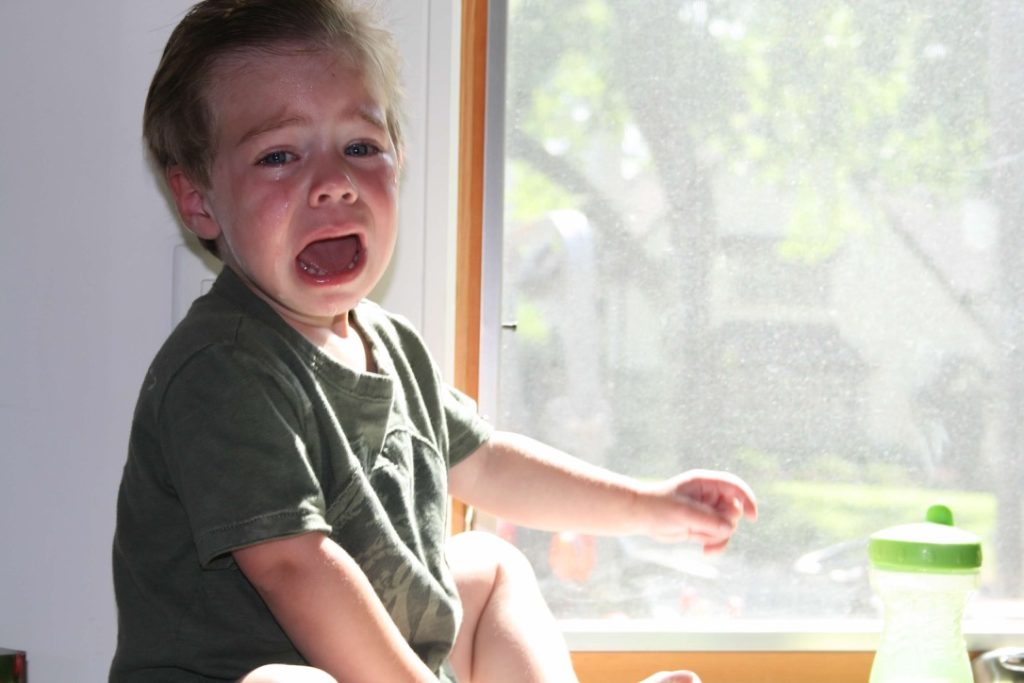How Dysregulated Young Kids Can Be
Picture a time you felt frustrated and close to tears. Now picture your partner yelling at you, “You are ok, I told you before not to do that. If you don’t stop crying, I am going to walk away and leave you to home yourself.”

I think we can all agree this would not be helpful and, in fact, would make you more upset and then maybe start a fight with your partner, thereby adding to what you were already upset about. But I will be the first to say I did this constantly with four my kids when they were young and dysregulated. If I am being honest, the reason is because I was dysregulated and so I just increased the chaos by adding hot-headed emotions.
If there is one thing I could tell my younger self, it would be to pause, breathe and take a step back. The kids are going to be okay. Little kids are a bundle of emotions, messy and intense. They cannot handle the big emotions flooding their little bodies, and it comes out extreme. And all too often, parents take it personally and get pulled into their orbit. Have you ever caught yourself arguing with a 3-year-old and thinking you will win?
The only goal and the only win in these moments is for us adults to stay regulated. And while this is far harder to say than do, it all starts with this awareness and the invitation to pause, breathe, and walk away until we feel as regulated as we can be.
Dealing with the intense emotions of little kids can incredibly challenging, but maintaining your own emotional regulation is crucial. Here are some tips to remember:
- Understand Developmental Levels:
Recognize that young children are still developing their emotional regulation skills. Their brains are not fully equipped to manage and express emotions effectively. Knowing this can help you approach their behavior with empathy. - Stay Calm and Collected:
When faced with a child’s emotional outburst, try to remain calm. Your own emotional regulation serves as a model for the child, showing them a healthy way to handle strong emotions. If you react emotionally, it can escalate the situation. - Validate Emotions:
Acknowledge the child’s feelings even if you don’t agree with their behavior. Phrases like, “I see that you’re really upset right now,” can help the child feel heard and understood, reducing the intensity of their emotions. - Use Simple Language:
Communicate with young children using simple and clear language. They may not have the vocabulary to express complex emotions, so using straightforward words can help them understand and process what they’re feeling. - Set Realistic Expectations:
Understand that little kids may not be able to articulate their emotions or follow logical reasoning during a meltdown. Adjust your expectations accordingly and focus on providing support rather than expecting them to reason through their emotions. - Offer Comfort:
Sometimes, a hug or gentle touch can provide comfort to a distressed child. Physical reassurance can help them feel secure and may contribute to their emotional regulation. - Create a Safe Space:
Have a designated safe space where the child can go to calm down. This can be a cozy corner with soft pillows or a specific room where they feel secure. Encourage them to use this space when they need a break. - Model Self-Regulation:
Children learn a lot from observing adults. When they see you handling stress or frustration calmly, it teaches them valuable self-regulation skills. Be a positive role model for how to manage emotions. - Take Breaks When Needed:
If you find yourself getting overwhelmed, it’s okay to take a step back. Sometimes, a brief break can help you regain composure and approach the situation with a clearer mindset. - Reflect on Your Own Triggers:
Be aware of your own triggers and emotional responses. Understanding what pushes your buttons can help you develop strategies to stay calm in challenging moments.
Remember, the ultimate goal is not to “win” arguments with young children but to create a supportive environment where they can learn to navigate their emotions with your guidance. By staying regulated yourself, you can provide the stability and reassurance they need during emotional moments.